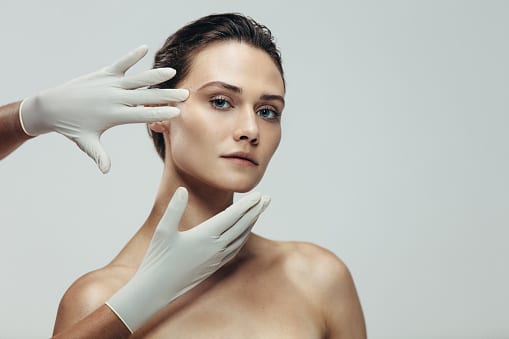The who’s who and the what’s what of plastic surgery. Getting the right answer can not only be hard, but incredibly daunting. We spoke with one of New Zealand’s top plastic surgeons, Dr. Katarzyna Mackenzie, MD, PhD, FRACS (Plast) to decipher some of the most asked questions – by you, our readers.
Ongoing treatments – What does plastic surgery upkeep look like?
I strongly believe a very good physician prescription skincare, religious sun protection and hydration are the most important regimens when it comes to maintaining skin health. Do all plastic surgery treatments require a lot of upkeep? That depends on many factors such as genetics, diet, weight gain or loss. The body constantly changes, mostly due to aging.
Scaring is inevitable in any surgery. What should patients expect their scars to look like and what can one do to ensure they are minimal?
It is normal for surgical scars to look like a fine thin line for the first month, but by the one-month mark the body begins to make more scar tissue and it becomes a little thickened. The thickening in the scar usually persists for about 3 months. From 3 months onwards the scar will start to soften and fade and can take up to 2 years to reach full maturation.
I advise my patients to keep a strip of Micropore tape on the wound 24 hours a day for a full month. This is designed to minimise stretching and movement at the incision and reduces the stimulation to generate more scar tissue. After one month the Micropore tape has done its job and it is time to start scar massage. This should be continued while the scar is thickened and firm to the touch.
How long do breast implants last for?
Although the breast implants are all durable and made to a high standard, they cannot be considered ‘lifetime devices’. Any woman undergoing a breast augmentation should assume that at some future date it will need to be revised or adjusted, either because her anatomy has changed (e.g. because of pregnancy and breastfeeding), capsular contracture or because the implant is susceptible to daily wear and tear. There are many quoted figures as to how long ultimately any implant will last. An average figure is probably in the order of 10-15 years.
Facelift scars – will I always have to wear my hair down to avoid showing these?
Generally speaking, the most obvious scars are behind the ears where tension is maximal. I advise my patients not to wear the hair tied up or back for at least six months. Scars can stretch just in front of the ear and occasionally a patient may need to undertake a small scar revision under local anaesthetic as a day case procedure. By hiding the incisions in the hairline and preserving the tragus (the small prominence on the inner side of your external ear), the facelift scars should not be easily noticeable.
What happens if I’m not happy with my plastic surgery results?
On rare occasions, cosmetic procedures may not yield the results the patients hoped for. The patient should discuss the concerns with the surgeon so the next steps forward can be suggested to improving the results. It is very important to be patient as full results may not be apparent for six months. Sometimes the results are influenced by a variety of reasons outside of the surgery and most of the time, disappointment is the result of miscommunication or unrealistic expectations, not the surgeon’s skill.
How many consultations should I have with my surgeon before the procedure?
I would normally meet my patient for at least two pre-operative consultations. The first of which is mainly about assessment and the formulation of a specific operative plan if surgery is the right choice. Then the patient needs to have a cooling-off period before booking surgery and meeting me again for a second consultation when we over things once more and discuss the possible complications in more detail. If needed, I see patients more often before surgery and these are usually patients interested in breast augmentation-selecting the correct implant size is very important.
Is it recommended to ‘shop around’ before deciding on your surgeon?
I strongly believe that the idea is not to have surgery but to have the right surgery with the right surgeon hence patients shouldn’t be afraid to shop around. It is important to do some research before consultation and choose a surgeon with the highest credentials. The surgeon should make you feel at ease and confident that they will be able to perform the surgery well. When deciding between surgeons, look for someone who can confidently answer all of your questions. You shouldn’t be left with unclear answers and if you are not sure how you feel see another surgeon.
This article was originally published in the Celebration 2020/21 Edition of The Beauty Book.

